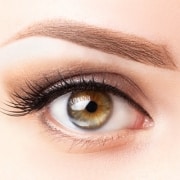Why Are My Eyes Chronically Dry?
Your eyes have a built-in mechanism for keeping your eyes moisturized. Although it’s natural for eyes to feel dry on occasion, this shouldn’t happen on a regular basis. If it does, you may have chronic dry eyes, and that can indicate a problem of some kind. Now, the problem isn’t necessarily something to do with the eye itself, although a dry eye evaluation in Champaign, IL is the only reliable determinant of that. The problem could be related to a number of things.
Allergies
It’s possible that you have eye allergies. Even if you’ve never had allergies before, they can develop at any time. Try to pay attention to when your eyes feel dry. You may discern a pattern that correlates between something in your diet or in the seasonal air, and the onset of dry eyes.
Toxins
Have you moved recently or changed to a new job? If your dry eyes only happen in a certain location, it’s possible that your eyes are responding to an airborne toxin. Even something as innocuous as household bleach can cause dry eyes if it’s used in excess quantities, such as when disinfecting commercial floors.
Tear Duct Blockage
If you find that your eyes have almost no moisture and you can’t even drum up a single tear, it’s possible there’s a physical reason for your dry eyes, which might be a blockage of your tear ducts. If this is the case, it might be possible to have a procedure to correct the problem.
There’s quite a bit of danger in ignoring chronic dry eyes. Your eyes need moisture. Without it, the cornea is prone to all kinds of damage, and there could be other complications, as well. Book an appointment today with your Champaign, IL optometrist so you can get a diagnosis and treatment.




